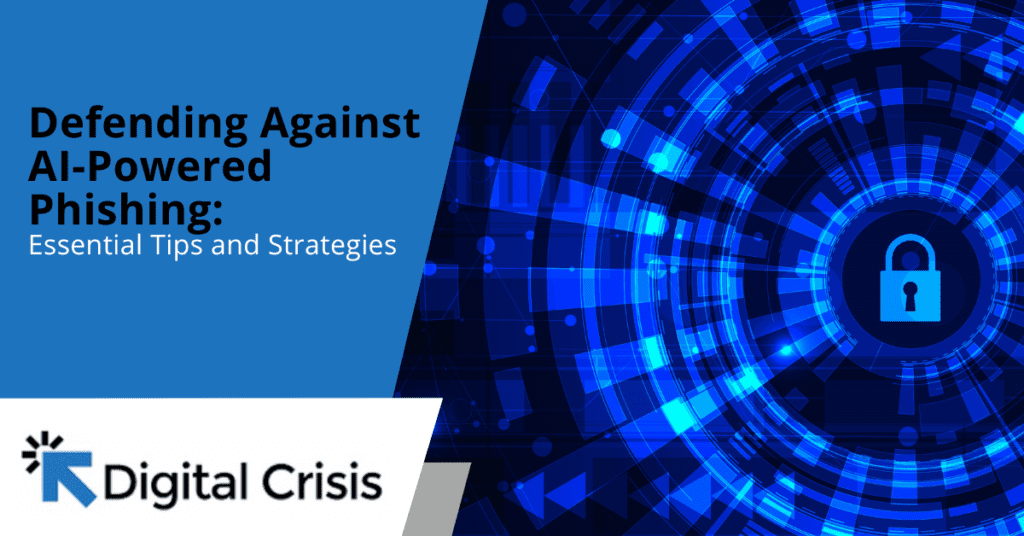
In the ever-evolving landscape of cybersecurity threats, the rise of AI-powered phishing attacks has become a significant concern for individuals and organizations alike. As artificial intelligence (AI) technologies continue to advance, cybercriminals are leveraging these powerful tools to create highly sophisticated and convincing phishing campaigns. These attacks can bypass traditional security measures, making them more challenging to detect and mitigate.
Phishing attacks have long been a prevalent cybersecurity threat, but the integration of AI has taken them to a whole new level. AI-powered phishing campaigns can analyze vast amounts of data, including social media profiles, email conversations, and public records, to craft highly personalized and convincing messages. These messages can mimic the writing style, tone, and even the visual branding of legitimate organizations, making it increasingly difficult for recipients to distinguish between genuine and malicious communications.
One of the most significant advantages of AI-powered phishing attacks is their ability to create highly personalized and targeted campaigns. By leveraging machine learning algorithms and natural language processing, cybercriminals can analyze vast amounts of data to identify potential victims and tailor their phishing messages to specific individuals or organizations.
These personalized attacks can include details such as the recipient’s name, job title, company information, and even references to recent events or conversations, making them appear more credible and increasing the likelihood of success.
Traditional security measures, such as spam filters and email gateways, are often designed to detect and block phishing attempts based on predefined rules and patterns. However, AI-powered phishing attacks can adapt and evolve, making them more difficult to detect using these traditional methods.
AI algorithms can analyze and learn from successful phishing campaigns, continuously refining their techniques and evading detection. Additionally, these attacks can leverage advanced techniques such as image-based phishing, where malicious links or attachments are embedded within images, further complicating detection efforts.
AI-powered phishing campaigns can be highly scalable and automated, allowing cybercriminals to target a vast number of potential victims simultaneously. Machine learning algorithms can analyze and identify potential targets, generate personalized phishing messages, and distribute them at scale, significantly increasing the potential impact of these attacks.
This scalability and automation also enable cybercriminals to launch more frequent and sustained phishing campaigns, making it challenging for organizations to keep up with the ever-changing threat landscape.
One of the most effective strategies for defending against AI-powered phishing attacks is to raise user awareness and provide ongoing education. Employees and individuals should be trained to recognize the signs of phishing attempts, including suspicious email addresses, urgent or threatening language, and requests for sensitive information.
Regular security awareness training programs should be implemented to keep users informed about the latest phishing techniques and best practices for identifying and reporting suspicious activities.
Implementing multi-factor authentication (MFA) can significantly reduce the risk of successful phishing attacks. MFA requires users to provide additional forms of authentication beyond just a password, such as biometric data, one-time codes, or physical security tokens.
Even if a user’s credentials are compromised through a phishing attack, the additional authentication factors make it much more difficult for cybercriminals to gain unauthorized access to sensitive systems or data.
Organizations should consider implementing advanced email security solutions that leverage AI and machine learning to detect and mitigate AI-powered phishing attacks. These solutions can analyze email content, attachments, and links in real-time, identifying potential threats based on behavioral patterns and anomalies.
Advanced email security solutions can also incorporate techniques such as sandboxing, which allows for the safe execution and analysis of potentially malicious content in an isolated environment, further enhancing detection capabilities.
Effective defense against AI-powered phishing attacks requires continuous monitoring and a robust incident response plan. Organizations should implement security information and event management (SIEM) solutions to collect and analyze security-related data from various sources, enabling the detection of potential threats and anomalies.
Additionally, a well-defined incident response plan should be in place to ensure a coordinated and efficient response to any detected phishing attempts. This plan should outline clear roles and responsibilities, communication protocols, and steps for containment, investigation, and recovery.
Defending against AI-powered phishing attacks requires a collaborative effort among organizations, security researchers, and law enforcement agencies. Sharing information about new phishing techniques, indicators of compromise (IoCs), and threat intelligence can help organizations stay ahead of emerging threats and better prepare their defenses.
Participating in industry-specific information sharing and analysis centers (ISACs) or cybersecurity communities can facilitate the exchange of valuable threat intelligence and best practices, enhancing the overall security posture of organizations.
As AI-powered phishing attacks continue to evolve and become more sophisticated, it is crucial for individuals and organizations to stay vigilant and proactive in their cybersecurity efforts. By implementing a multi-layered defense strategy that combines user awareness, advanced security solutions, continuous monitoring, and collaboration, organizations can significantly reduce their risk of falling victim to these highly targeted and convincing attacks.
At Digital Crisis, we understand the gravity of the AI-powered phishing threat and are committed to providing cutting-edge cybersecurity solutions and services to help our clients stay ahead of these evolving risks. Our team of experts leverages the latest technologies and best practices to ensure comprehensive protection against AI-powered phishing and other emerging cyber threats.Contact us for a free consultation today.